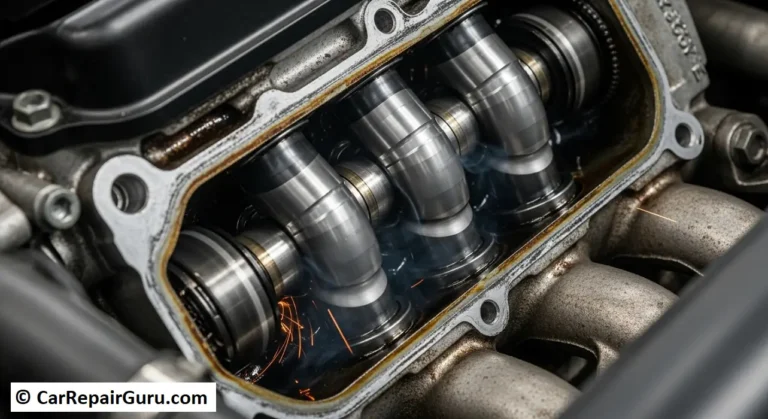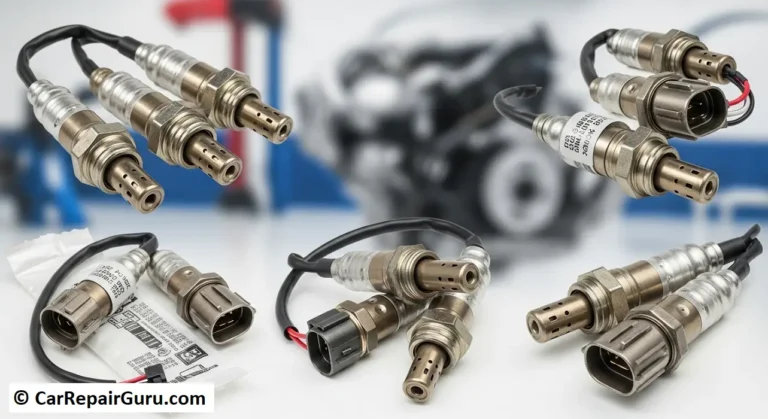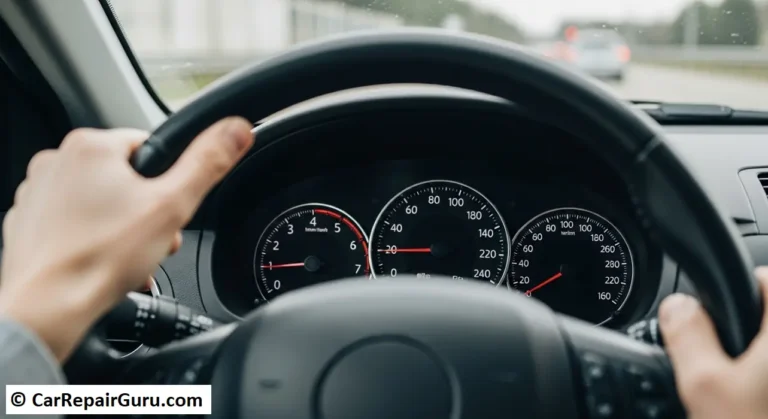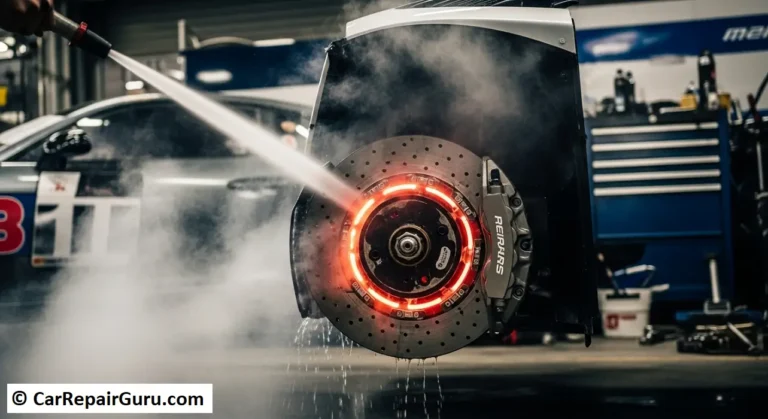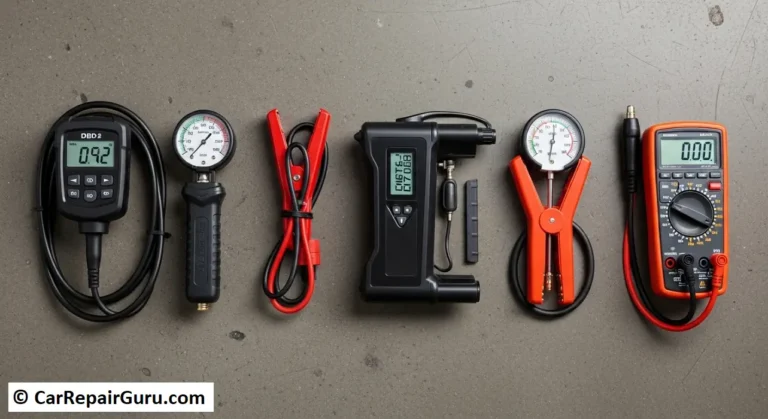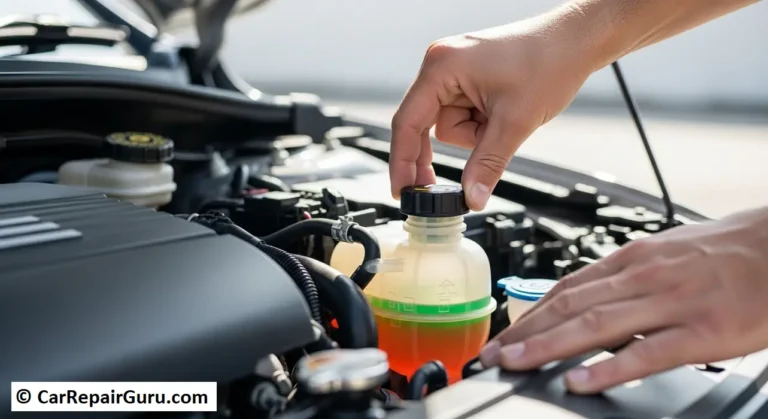
Engine noises can be more than just an annoyance—they often signal underlying issues that may lead to costly repairs if ignored. From knocking and tapping to sputtering and clicking, each sound tells a story about your car’s health.
In this guide, we’ll explore the common causes of engine noises, how to diagnose them effectively, and practical solutions to address them. Whether you’re a DIY enthusiast or prefer consulting a professional, understanding the source of these noises is the first step to ensuring your vehicle runs smoothly and safely.
By the end of this article, you’ll have actionable insights into fixing engine noises (primary keyword) and tips to prevent them from occurring in the future. Let’s dive in and tackle those troubling sounds head-on.
Common Causes of Engine Noises
Unusual engine noises often point to specific problems that require your attention. Here are the most common causes of engine noises and what they might mean:
1. Lack of Oil or Low Oil Pressure
Oil is essential for lubricating moving parts within your engine. Without sufficient oil, friction increases, causing parts to grind against each other. This lack of lubrication often results in tapping or knocking sounds.
- Symptoms: Persistent knocking, especially when accelerating.
- Solution: Check the oil level and quality. If it’s low, add oil immediately. If the problem persists, inspect for leaks or a failing oil pump.
2. Faulty Spark Plugs or Ignition Timing
Spark plugs ignite the air-fuel mixture in the engine cylinders. Faulty plugs or incorrect ignition timing can cause incomplete combustion, leading to a knocking or popping sound.
- Symptoms: Engine misfires, reduced fuel efficiency, and a “pinging” noise.
- Solution: Inspect and replace worn-out spark plugs. Ensure ignition timing is adjusted correctly.
3. Dirty or Clogged Fuel Injectors
Fuel injectors spray fuel into the engine for combustion. When they are clogged or dirty, the fuel delivery becomes inconsistent, leading to sputtering or tapping sounds.
- Symptoms: Poor acceleration, rough idling, and sputtering sounds.
- Solution: Use a fuel injector cleaner or have the injectors professionally cleaned.
4. Premature Combustion or Detonation
This occurs when the air-fuel mixture ignites prematurely, creating an audible knocking sound. It’s often caused by using low-octane fuel or carbon buildup inside the engine.
- Symptoms: Persistent knocking, especially under load.
- Solution: Use fuel with a higher octane rating and consider an engine cleaning service to remove carbon deposits.
5. Loose Components in the Engine
Loose parts, such as valves, rods, or pistons, can cause clicking or rattling noises. Over time, wear and tear can loosen these components, leading to irregular sounds.
- Symptoms: Metallic clicking or rattling noises, especially at idle.
- Solution: Tighten or replace loose components. This often requires professional inspection.
Final Thoughts
Identifying the cause of your engine noise is the first step to resolving it. Whether it’s low oil, a faulty spark plug, or loose parts, acting quickly can save you from more expensive repairs later. With these insights, you’re one step closer to fixing engine noises and maintaining your car’s health.
How to Diagnose Engine Noises
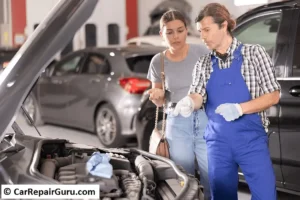
When your engine starts making unusual noises, diagnosing the root cause is critical. Here’s a step-by-step approach to identifying the problem and taking appropriate action.
1. Listening to Sound Patterns and Locations
The type of noise and its location can provide important clues about the issue.
- Steps:
- Start the engine and let it idle.
- Note whether the noise is rhythmic (e.g., tapping or knocking) or irregular (e.g., sputtering).
- Move around the car and listen carefully to pinpoint whether the sound is coming from the engine block, exhaust, or under the hood.
Pro Tip: Use a mechanic’s stethoscope or a long screwdriver to isolate specific areas of the engine.
2. Using Diagnostic Tools for Error Codes
Modern cars are equipped with onboard diagnostic (OBD) systems that can provide valuable information about engine issues.
- Steps:
- Plug an OBD scanner into the vehicle’s diagnostic port (usually under the dashboard).
- Read the error codes and refer to your car’s manual or online resources to decode them.
- Focus on codes related to misfires, fuel system issues, or timing.
Pro Tip: Many auto parts stores offer free OBD scanning services.
3. Checking Oil Levels and Quality
Low or poor-quality oil can lead to engine noises like knocking or tapping.
- Steps:
- Check the oil dipstick for level and color.
- If the oil appears dirty or too low, top it up or replace it entirely.
- Inspect for oil leaks under the vehicle.
Pro Tip: Use high-quality oil that matches your vehicle’s specifications to avoid long-term damage.
4. Inspecting Ignition Systems and Fuel Injectors
Problems with spark plugs, ignition timing, or fuel injectors can result in misfires and irregular engine sounds.
- Steps:
- Remove and inspect spark plugs for wear or damage.
- Check ignition timing using a timing light (refer to the car manual for specifications).
- Examine fuel injectors for clogging and consider using a fuel injector cleaner if necessary.
Pro Tip: If issues persist, a mechanic can perform a deeper diagnostic test on the ignition and fuel systems.
Diagnosing engine sounds involves careful listening, systematic inspection, and leveraging diagnostic tools. By addressing issues like oil levels, ignition systems, and fuel injectors, you can resolve most noise-related problems and ensure your car runs smoothly.
DIY Solutions for Common Engine Noises
Fixing engine noises doesn’t always require a trip to the mechanic. Many engine problems can be resolved with a few simple DIY fixes. Here are some common solutions for addressing engine noises (primary keyword) that you can try yourself, saving time and money.
1. Adding or Changing Engine Oil
One of the most common causes of engine noises is insufficient or dirty oil. Engine oil lubricates the moving parts of your engine, reducing friction and preventing damage. When oil levels are low or the oil becomes too dirty, it can lead to tapping, knocking, or even grinding noises.
- Steps:
- Check the oil level using the dipstick.
- If the oil is low, top it up with the appropriate oil type for your car.
- If the oil is dirty, change it. Most cars require oil changes every 3,000 to 5,000 miles.
- Don’t forget to replace the oil filter when you change the oil.
- Tip: Always use the recommended oil grade for your car (check your owner’s manual for guidance).
By regularly maintaining your oil, you can prevent many engine issues and extend the lifespan of your engine.
2. Cleaning Spark Plugs
Faulty or dirty spark plugs can cause misfires and lead to knocking or popping sounds in your engine. Spark plugs are responsible for igniting the air-fuel mixture in the cylinders, and when they get dirty or worn out, it affects performance.
- Steps:
- Locate the spark plugs under the hood (refer to your vehicle manual).
- Use a spark plug socket wrench to remove the plugs.
- Inspect the plugs for signs of wear (cracks, corrosion) or carbon buildup.
- Clean the spark plugs with a wire brush or replace them if necessary.
- Tip: Ensure you gap the spark plugs correctly using a feeler gauge before reinstalling them.
Cleaning or replacing spark plugs is a simple yet effective way to eliminate engine noises caused by ignition problems.
3. Using Fuel Injector Cleaners
Clogged or dirty fuel injectors can cause sputtering, hesitation, or poor acceleration, resulting in engine noises. Fuel injectors spray a fine mist of fuel into the engine for combustion, and over time, they can become clogged with carbon deposits.
- Steps:
- Purchase a fuel injector cleaner from your local auto store (you can find ones that you pour directly into the gas tank).
- Follow the instructions on the cleaner’s label, which usually involves adding it to the fuel tank and running the engine.
- For a more thorough clean, you may need to remove and clean the injectors manually, but this is a more advanced DIY task.
- Tip: Use a high-quality fuel injector cleaner regularly to maintain optimal performance.
A simple cleaning solution can help restore fuel injector function and eliminate sputtering noises in the engine.
4. Ensuring Proper Timing
Incorrect ignition timing can lead to a variety of engine noises, especially knocking sounds. The ignition timing determines when the spark plugs fire in relation to the engine cycle, and when it’s off, it can cause poor combustion and strange noises.
- Steps:
- Check the timing using a timing light.
- Adjust the timing if necessary, referring to your vehicle’s manual for the correct timing specifications.
- If your car uses a timing belt, check it for wear and replace it if necessary.
- Tip: If you’re unsure about adjusting timing, it’s best to consult a mechanic, as improper timing can damage the engine.
Correcting the ignition timing can eliminate persistent knocking and improve engine performance.
Final Thoughts
If your car is making odd noises, don’t panic—fixing engine noises is often simpler than it seems. By changing the oil, cleaning spark plugs, using fuel injector cleaners, and ensuring proper timing, you can tackle the most common engine issues yourself. These DIY fixes not only solve the problem but can also help prevent future engine noise.
By maintaining your engine regularly, you ensure that it continues to run smoothly for years to come. If the noises persist or worsen despite these efforts, it may be time to consult a professional mechanic.
When to Seek Professional Help
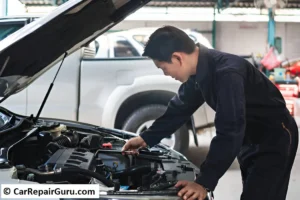
While many engine noises can be resolved with simple DIY fixes, there are certain situations where professional help is necessary. Here are some signs that indicate it’s time to take your car to a mechanic:
1. Persistent Noises
If the engine noises continue even after you’ve addressed common causes like low oil levels or dirty spark plugs, it may indicate a more serious underlying problem. Persistent knocking, rattling, or grinding sounds that don’t subside could point to issues with the engine’s internal components, such as bearings or pistons. These types of problems often require professional diagnostics and repairs.
- When to act: If the noises persist after DIY solutions, it’s crucial to get the engine checked to avoid further damage.
2. Dashboard Warning Lights
Modern cars are equipped with a variety of sensors that monitor engine health. When something goes wrong, your dashboard warning lights, like the check engine light or oil pressure light, will alert you. Ignoring these warnings can lead to severe engine damage, as many of these systems are linked to critical engine functions.
- When to act: If the warning lights come on and you notice unusual noises, seek professional help immediately. These lights often signal issues that require specialized diagnostic tools.
3. Visible Engine Damage
If you notice visible signs of engine damage, such as oil leaks, cracked components, or visible smoke, it’s time to bring your vehicle to a mechanic. These signs usually indicate a severe problem that requires professional intervention.
- When to act: If there are signs of leaks, smoke, or burnt components, it’s best to stop driving the vehicle and get it assessed by a professional as soon as possible.
While DIY fixes can address many engine noise issues, persistent problems, warning lights, and visible damage require the expertise of a trained mechanic. Seeking professional help early on can save you from costly repairs down the road.
Preventive Measures to Avoid Engine Noises
To keep your engine running smoothly and minimize unwanted noises, regular maintenance is key. By following a few simple preventive measures, you can reduce the risk of engine issues and ensure long-term performance.
1. Regular Oil Changes
Oil is the lifeblood of your engine. It lubricates the moving parts and helps prevent friction that can cause knocking or grinding sounds. Over time, oil breaks down, losing its effectiveness, which can lead to engine wear and noise.
- Tip: Change your oil every 3,000 to 5,000 miles or as recommended by your vehicle’s manufacturer.
- Benefits: Regular oil changes ensure that your engine is always well-lubricated, reducing the chances of engine noise and improving overall performance.
2. Periodic Ignition System Checks
The ignition system, including spark plugs, coils, and timing, plays a significant role in engine performance. Worn-out spark plugs or incorrect ignition timing can cause knocking or sputtering sounds. Regular checks help keep the ignition system functioning properly.
- Tip: Have your ignition system inspected during regular service intervals. Replace spark plugs every 30,000 to 100,000 miles, depending on your vehicle.
- Benefits: Prevents misfires and ensures efficient combustion, reducing engine noise.
3. Use High-Quality Fuel and Parts
Using low-quality fuel or cheap aftermarket parts can lead to poor engine performance, including knocking and irregular engine sounds. High-quality fuel burns cleaner, and using high-quality components can ensure optimal engine function.
- Tip: Always use the recommended fuel grade for your vehicle, and opt for OEM (original equipment manufacturer) parts when replacing components.
- Benefits: Cleaner combustion and fewer engine-related problems.
4. Maintaining a Functional Cooling System
An overheated engine can lead to severe damage and a host of undesirable noises. The cooling system ensures the engine stays at the right temperature by circulating coolant. A malfunctioning radiator or water pump can cause engine overheating and unusual sounds.
- Tip: Check your coolant levels regularly and inspect hoses and belts for wear. Have your cooling system flushed every 30,000 miles or according to your vehicle’s guidelines.
- Benefits: Prevents overheating, which can cause engine components to expand and create additional noise.
Maintaining your engine and following these preventive tips can greatly reduce the likelihood of engine noises. Regular oil changes, ignition system checks, using high-quality fuel and parts, and ensuring your cooling system functions properly are all essential in preventing unwanted engine sounds. By staying on top of these maintenance tasks, you’ll enjoy a quieter, smoother ride for years to come.
Conclusion
Engine noises can stem from a variety of causes, including insufficient oil, faulty spark plugs, dirty fuel injectors, and improper timing. These issues often lead to annoying sounds such as knocking, tapping, or sputtering. Fortunately, many common engine noises can be fixed through simple DIY solutions like changing oil, cleaning spark plugs, using fuel injector cleaners, and ensuring proper timing.
However, if the noises persist or are accompanied by warning lights, visible damage, or other concerning signs, it’s crucial to seek professional help. Ignoring these symptoms can lead to severe engine damage and costly repairs. Timely repairs and maintenance, such as regular oil changes, checking the ignition system, and maintaining a functional cooling system, can prevent engine noises from developing and extend the lifespan of your vehicle.
By addressing the root causes and staying proactive with maintenance, you can keep your engine running smoothly and avoid unnecessary repairs. Regular diagnostics and using high-quality fuel and parts will help ensure optimal performance and a quieter driving experience.
FAQs About Fixing Engine Noises
What causes engine knocking sounds?
Engine knocking is often caused by poor timing or improper fuel combustion. This can happen due to incorrect ignition timing, low-quality fuel, or carbon buildup. It occurs when the air-fuel mixture ignites too soon, leading to knocking. Regular timing adjustments and using quality fuel can help.
Can low oil levels cause engine noises?
Yes, low oil levels can cause tapping or knocking sounds. Without enough oil, the engine parts lack proper lubrication, leading to increased friction and noise. Regularly check oil levels and perform oil changes as needed.
How do I know if I need professional help?
If engine noises persist after basic troubleshooting or if there’s visible damage, seek professional help. Warning lights or severe overheating can also indicate the need for expert diagnostics.
How can I prevent engine noises?
Regular oil changes, using high-quality fuel, and checking the ignition system can help prevent engine noises. Proper maintenance of your cooling system also reduces overheating risks.
Is it safe to drive with engine noises?
Driving with persistent engine noises can be risky. It may signal internal damage or wear that could worsen, leading to costly repairs. If the noise doesn’t go away after simple fixes, stop driving and consult a mechanic.
